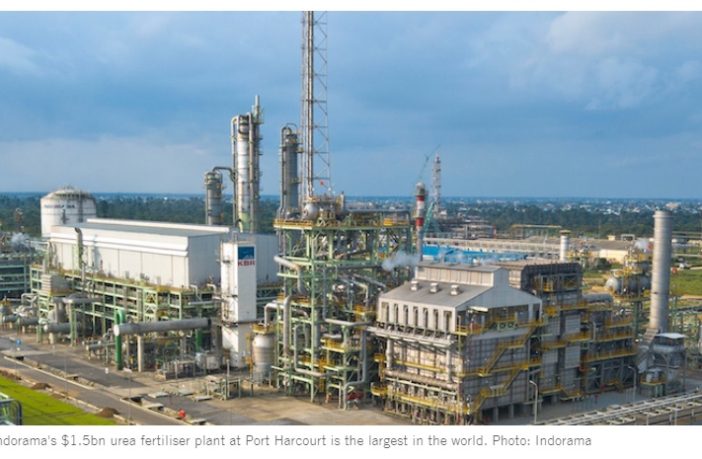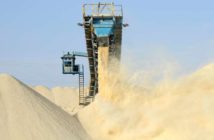The Africa Report
By Eromo Egbejule, in Lagos
Morocco’s OCP expects to finalise a deal by the end of 2019 to build a $1.5bn ammonia plant in Nigeria, providing the latest boost to the country’s push for food security.
The state-run Moroccan fertiliser manufacturer – one of the world’s largest phosphate exporters – it is collaborating with the Nigeria Sovereign Investment Authority (NSIA) for this investment. A memorandum of understanding was signed last June during President Muhammadu Buhari’s visit to Rabat.
The announcement comes as a welcome news to stakeholders in the agriculture sector; despite agriculture contributing about 24% of its Nigeria’s gross domestic product (GDP) annually, an overwhelming majority of farmers are still at subsistence level.
When complete, the new plant will have a capacity of over 1 million tonnes. Its establishment is part of a larger trend of commitments over the last few years to build fertiliser plants in Nigeria.
- As part of a commitment to ensure food security, the Buhari administration set out to revive 20 fertiliser plants last year.
- The Fertiliser Producers and Suppliers Association of Nigeria (FEPSAN) claims a majority of them have now been revived and are operational. It adds that the country should soon be exporting NPK (Nitrogen, Phosphorus, Potassium) fertilisers.
- In July 2017, Vice-President Yemi Osinbajo launched what is considered the world’s largest single-train urea plant, with a production capacity of 1.5m tonnes of urea fertiliser, in Rivers State. It is owned by Indorama Eleme Fertiliser and Chemicals Limited, the Nigerian affiliate of the Indonesia-based Indorama conglomerate. There are reports of a second plant underway, with support loans from the International Finance Corporation (IFC) and the African Development Bank (AfDB).
- Africa’s richest man, Aliko Dangote, will not be outdone. He plans to commission another urea fertiliser plant later this year with an expected capacity double that of Indorama.
When full on-stream, all the plants together should ensure self-sufficiency in fertiliser production and vastly improve crop production as Africa’s most populous country prepares to grow enough for its own, ever-increasing population.







